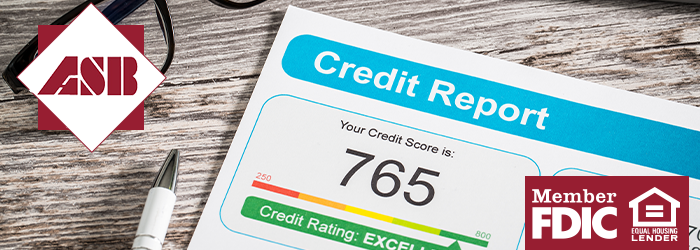
April is Financial Literacy Month, a time dedicated to enhancing our understanding of personal finance and making informed decisions about money. One of the key aspects of financial health is your credit score—a three-digit number that can significantly impact your ability to secure loans, obtain favorable interest rates, and even influence your job prospects. In this blog, we will delve into the crucial role your credit score plays in your financial life and explore proven strategies to elevate it.
Understanding Your Credit Score:
Your credit score is a numerical representation of your creditworthiness, ranging from 300 to 850. The higher your score, the more trustworthy you appear to lenders. Several factors contribute to your credit score, including:
- Payment History (35%): Timely payments on credit accounts contribute positively to your score, while overdue payments, defaults, and bankruptcies have adverse effects.
- Credit Utilization (30%): This is the ratio of your current credit card balances to your credit limit. Aim to keep this below 30% to avoid negative impacts on your score.
- Length of Credit History (15%): The longer your credit history, the better. It reflects your experience in managing credit responsibly.
- Types of Credit in Use (10%): A diverse mix of credit, including credit cards, mortgages, and installment loans, can positively impact your score.
- New Credit (10%): Opening multiple new credit accounts in a short period may be perceived as risky behavior.
Proven Strategies to Elevate Your Credit Score:
- Check Your Credit Report Regularly:
- Obtain free annual credit reports and dispute inaccuracies promptly to ensure your credit report is an accurate reflection of your financial behavior.
- Pay Your Bills on Time:
- Set up automatic payments or reminders to avoid missing due dates.
- Consistent, on-time payments have a significant positive impact on your credit score.
- Reduce Credit Card Balances:
- Focus on paying down high-interest credit card debt.
- Aim to keep your credit card balances below 30% of your credit limit.
- Avoid Opening Unnecessary Credit Accounts:
- Think twice before applying for new credit cards or loans, especially within a short period.
- Build a Diverse Credit Mix:
- If you do not have a variety of credit accounts, consider responsibly adding several types, such as a credit card or installment loan.
As we celebrate Financial Literacy Month, take this opportunity to assess and improve your credit score. A healthy credit score is an invaluable asset that opens doors to better financial opportunities. By understanding the factors that influence your credit score and implementing proven strategies, you can embark on a journey toward financial well-being and security. Remember, the road to a better credit score begins with informed and responsible financial choices.
Let American State Bank help you on your financial journey. Contact us or visit our website to find out more about how we can help you.
April 2, 2024 by American State Bank










